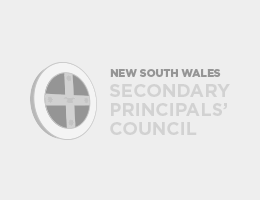Educational success is more than a PISA score
New PISA data released by the OECD highlights that the academic success of students in East Asian countries comes at the expense of student physical and psychological health and wellbeing. The NSW SPC President, Chris Presland, commented that these results invite educators and policymakers to reflect upon how we define success in the Australian education system:
“East Asian countries such as Hong Kong, Japan and China regularly achieve the highest scores on international tests such as PISA and media and political discussion often focuses on how Australia can seek to emulate these results. However, what we’re seeing from the latest OECD results is a rather unhappy student population in these countries. For example, 22% of Korean students and 16% of students in Japan indicated they were not satisfied with life and the average index of life satisfaction was much lower than the average for the OECD. A significant factor behind the academic success of East Asian countries is the cultural emphasis placed on studying and academic achievement, however from an Australian educational perspective I think it’s very important that we look critically at these findings and think about how educational success and engagement is much more than a test score.”
While Australia did not participate in the survey, Mr. Presland believes that the Australian education system provides a broad and challenging curriculum which caters to the intellectual, physical and psychological needs of young people:
“A recent PISA report into student wellbeing found that Australian students are twice as likely to say they expect to go to university as students in Finland, nearly 35 per cent more likely to say they want to be one of the best in their class, and three times as likely to have a paid job while they’re at school. I think this a really interesting finding because it shows that while we want our students to be academically motivated it isn’t the only measure of success. We want young people to be highly engaged and active citizens in the community, whether that’s by having a part- time job, playing in a sporting team or volunteering for a community organisation. Building resilient, inquisitive and compassionate young people isn’t something you can quantify in a test score and so we need to be cautious about judging whether our education system is thriving or failing based on a single measure such as PISA.”
“An ongoing challenge for all countries is to maintain high academic standards without sacrificing the mental and physical health of our students. The OECD study shows that PISA success comes at a cost and I believe Australia needs to be careful to avoid taking the East Asian approach. We are producing knowledgeable and adaptable students ready to engage in the world around us and this is something that should be celebrated rather than forgotten in the pursuit of academic success measured by test results,” Mr. Pesland said.
Chris Presland
President, NSW Secondary Principals’ Council
M: 0414986514
E: chris.presland@det.nsw.edu.au















